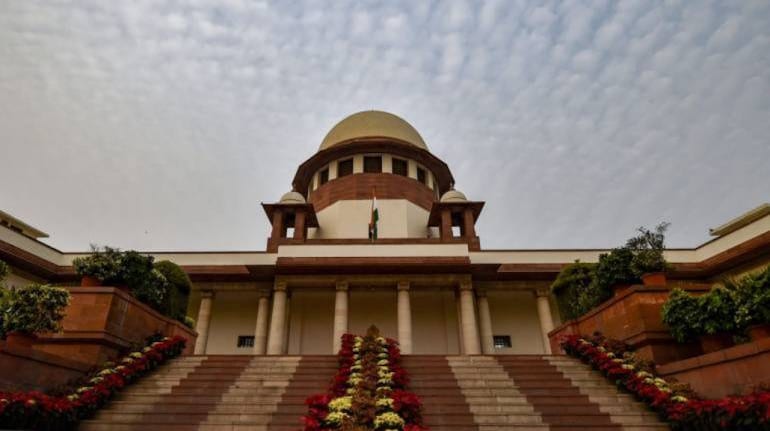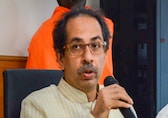The apex court's bench headed by the Chief Justice of India SA Bobde is scheduled to hear a PIL which is seeking the removal of protesting farmers from Delhi's borders on December 16.
Farmers from Punjab and Haryana are protesting at several border points of the nation's capital against the three agriculture reform laws.
This plea filed by law student Rishabh Sharma argues that it is necessary to remove the gathering as it is resulting in the blocking of roads and disrupting emergency/medical services in Delhi.
Referring to the COVID-19 guidelines issued by the government, the plea said despite advisories not to hold large gatherings amid the pandemic, lakhs of farmers have assembled at Delhi's borders. This, it says, may lead to an increase in the number of COVID-19 cases.
According to the Supreme Court's website, a bench of Chief Justice S A Bobde and justices A S Bopanna and V Ramasubramanian will hear the plea which says that protestors can continue to protest peacefully after the threat of the virus is over.
The petition has claimed that the Delhi Police had on November 27, allowed the protesters to hold a demonstration peacefully at the Nirankari ground in Burari. Despite this, they have blocked the borders of the national capital, reported news agency PTI.
"Because of the ongoing protest at Delhi's borders, the roads have been blocked by the protesters and the border points have been closed, which have affected vehicular traffic and people who are travelling to and from Delhi to get medical treatment in reputed government/private hospitals," the plea, filed through advocate Om Prakash Parihar, said.
Referring to as the October 7 order of the top court, delivered on a petition against the blockade of a road in the Shaheen Bagh area here by those protesting against the Citizenship (Amendment) Act, which said public spaces cannot be occupied indefinitely and demonstrations expressing dissent have to be staged at designated places alone.
"The petitioner is seeking an urgent direction from this court for immediate removal/dispersal of such mass gathering of protesters at the Delhi borders and shift them to the place already allotted by the Delhi Police in view of an immediate threat of the coronavirus infection and spread," the plea said.
The plea also said that due to ongoing protests, traffic movement has been disrupted at several border points of the national capital as the police have kept key routes connecting Delhi to Haryana and Uttar Pradesh closed in view of the agitation.
At least five rounds of formal talks have taken place between the Centre and the representatives of thousands of farmers, mainly from Punjab and Haryana, but the deadlock has continued with the unions sticking to their main demand for a repeal of the three contentious laws and repeatedly rejecting the government's offer to make certain changes in the legislations and give written assurances or clarifications on a few issues such as the minimum support price (MSP) and the "mandi" (wholesale market) system.
With inputs from PTI 











_2020091018165303jzv.jpg)

























